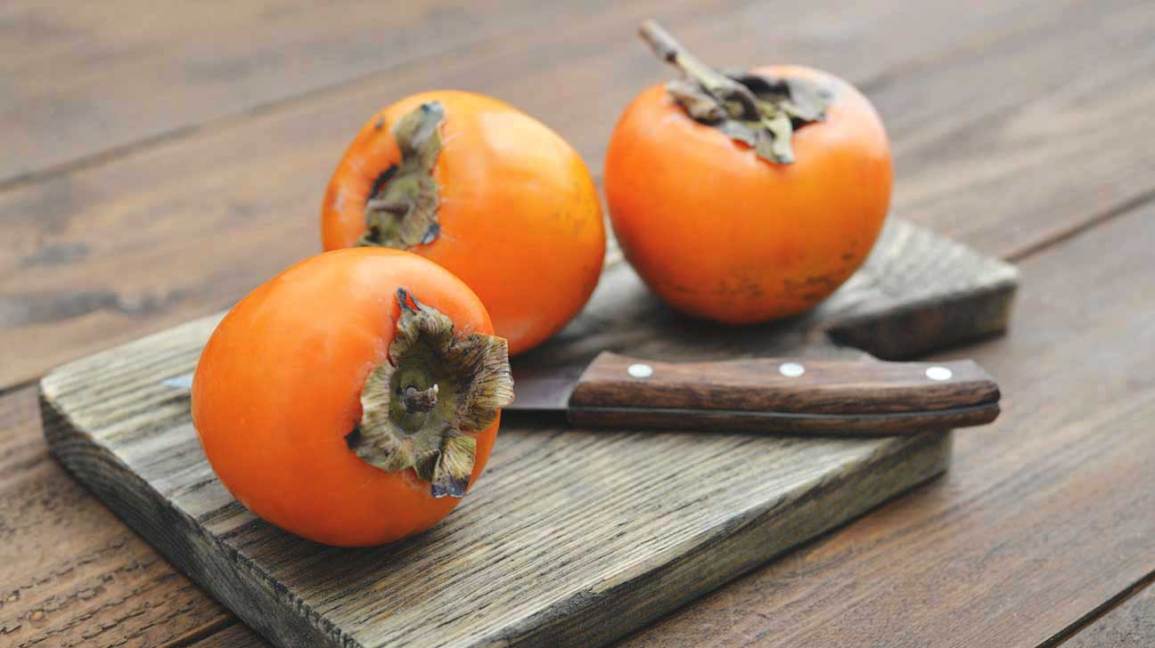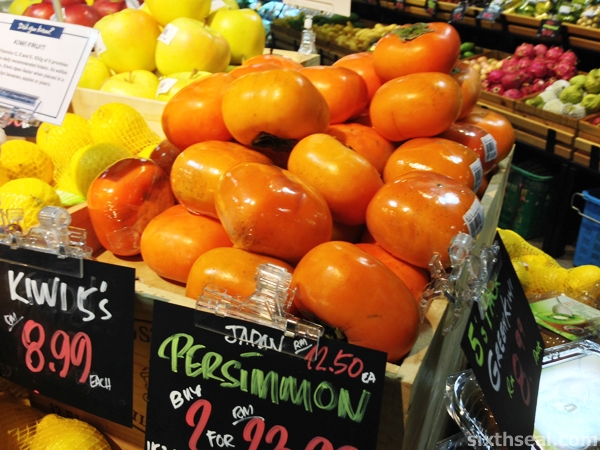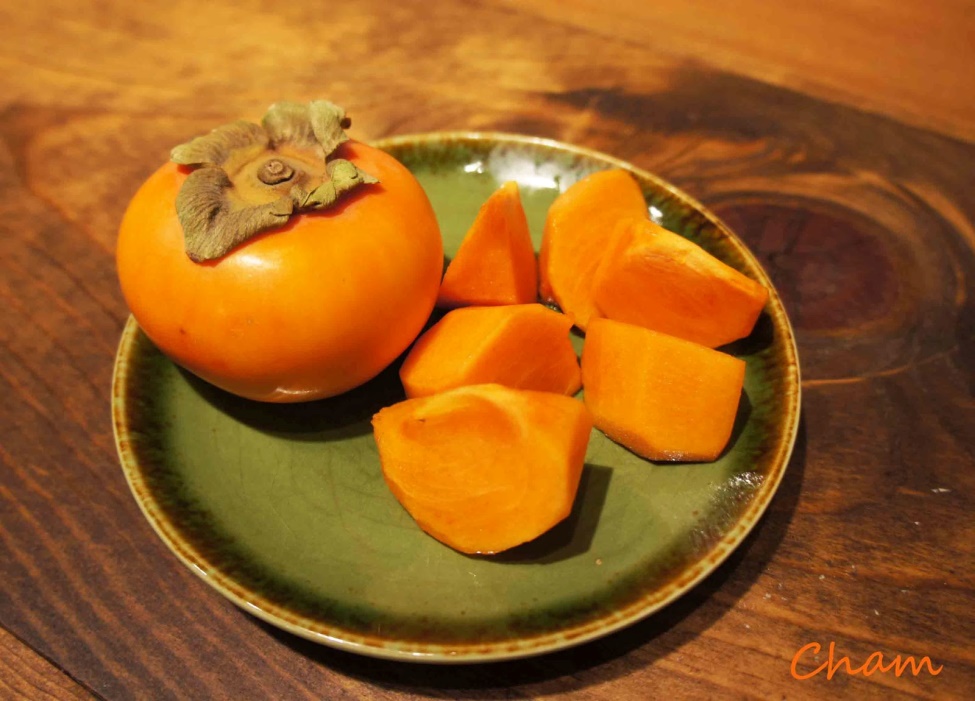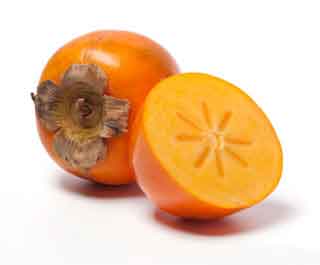Adding This Fruit to Your Diet is a NO-BRAINER!
The persimmon is an ancient and venerable fruit whose scientific name, Diospyros, is loosely translated to “food of the gods.”

Indeed, few fruits are sweeter to eat when ripe — or more dreadful to eat when unripe (bitter and astringent). For its medicinal properties, these qualities may be valuable (with special consideration to the tannins found in persimmon skin).
In culinary uses, bitter and astringent don’t work! So it’s important to remember that until the entire persimmon has softened to a jelly-like texture, it’s not ripe — no matter the fruit’s deceivingly appealing exterior. Once soft, however, it becomes as sweet as honey with a luscious gumdroppy quality and the subtlest hint of apricot flavor, as divine-tasting as its name indicates.

You’ll start seeing them in your grocery stores in a few weeks. Persimmons are typically harvested during November and December.
Besides their delectable taste, are there other reasons to indulge in this unusual fruit? Absolutely! Though small in size, persimmons are packed with an impressive amount of nutrients:
Calories: 118
Carbs: 31 grams
Protein: 1 gram
Fat: 0.3 grams
Fiber: 6 grams
Vitamin A: 55% of the RDI
Vitamin C: 22% of the RDI
Vitamin E: 6% of the RDI
Vitamin K: 5% of the RDI
Vitamin B6 (pyridoxine): 8% of the RDI
Potassium: 8% of the RDI
Copper: 9% of the RDI
Manganese: 30% of the RDI

Persimmons are also a good source of thiamin (B1), riboflavin (B2), folate, magnesium and phosphorus. And because they’re low in calories and loaded with fiber, they’re a weight loss-friendly food.
Aside from vitamins and minerals, persimmons contain a wide array of plant compounds, including tannins, flavonoids and carotenoids, which also positively impact overall health.
And to top it off, the leaves of the persimmon fruit are also high in vitamin C, tannins and fiber, as well as a common ingredient in therapeutic teas.
This is a fruit that is a powerful oxidative stress preventer. Oxidative stress is a common contributor to chronic diseases, including heart disease, diabetes, cancer and neurological conditions such as Alzheimer’s. So you can see why nutritionists highly encourage us to enjoy persimmon season!

Thus, the bottom line: Persimmons are a sweet, versatile fruit full of vitamins, minerals, fiber and beneficial plant compounds. What’s more, they promote heart health, reduce inflammation, support healthy vision and keep your digestive system healthy.
On top of it all, they are tasty and pair well with many foods. With all the benefits that persimmons have to offer, adding these tasty fruits to your diet should be a no-brainer!

PERSIMMON CORN MUFFINS (yield: 12 muffins)
With just a touch of sweetness, these persimmon corn muffins are a great match for any spicy or tangy main course. Or for dessert, top them with a simple persimmon sauce.
1⁄4 cup persimmon pulp
2 tablespoons melted butter
1 cup milk
2 eggs
1⁄4 cup sugar
1⁄2 cup walnuts or pecans, finely chopped
1 teaspoon salt
3 teaspoons baking powder
1 cup yellow cornmeal
1 cup whole wheat flour
Combine all ingredients in a large bowl and mix well
Butter a muffin pan, or line with paper baking cups that have been lightly buttered, and divide the batter evenly among the muffin cups.
Bake at 400 degrees Fahrenheit for 20 minutes.
Recipe Note: To make persimmon pulp, remove the stems, slice the persimmons in half, and scoop out any seeds. Place the seeded fruit into a blender and puree. Sieve the puree over a bowl and press it though for a smooth consistency. Make sure the skin has been well blended! It's often the best part, but large pieces can be unpleasant.
- www.healthline.com
- www.sixthseal.com
- www.aspoonofstyle.blogspot.com
- www.foodfacts.mercola.com
- www.heirloomgardener.com
 Alice Osborne
Alice Osborne
Weekly Newsletter Contributor since 2006
Email the author! alice@dvo.com
